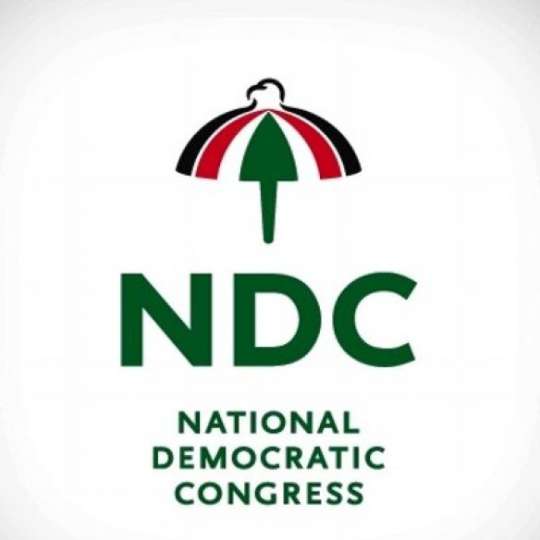The National Democratic Congress’s (NDC) commanding 183-seat parliamentary majority has reignited discussions about constitutional reforms, as the arrest and detention of opposition politician Kwame Baffoe underscores ongoing tensions over Ghana’s institutional appointment practices.
On September 12, 2025, Circuit Court Judge Samuel Bright Acquah remanded the New Patriotic Party (NPP) Bono Regional Chairman, Kwame Baffoe, popularly known as Abronye DC, into custody for the second time after denying him bail. The Ghana Police Service arrested Mr. Kwame Baffoe on September 8, 2025, for offensive conduct conducive to the breach of peace.
Baffoe stated that “in February 2025, shortly after the current NDC government assumed office, I became the first opposition politician to be invited, arrested, and detained by the National Investigations Bureau (NIB) for over 13 hours” following his “public criticism of the government’s crude, unfair” practices.
The NDC’s overwhelming parliamentary presence represents the largest legislative majority in Ghana’s Fourth Republic history. The party secured 183 out of 276 seats, leaving the New Patriotic Party with 93 seats. This majority exceeds the two-thirds threshold required for constitutional amendments, providing President John Dramani Mahama unprecedented legislative power.
Ghana’s pattern of wholesale institutional replacements continues under the new administration. On March 13, 2025, President Mahama appointed COP Christian Tetteh Yohuno as Inspector General of Police, replacing Dr. George Akuffo Dampare, continuing a cycle that has seen frequent changes in key institutional leadership positions across different administrations.
The country’s institutional instability extends beyond police leadership. Every electoral cycle typically witnesses systematic replacement of Supreme Court justices, Electoral Commission leadership, Auditor General positions, heads of state enterprises, and regulatory commissioners.
Political analysts argue this pattern creates uncertainty for international investors and development partners. Countries with merit-based appointment systems and longer institutional tenure generally attract higher levels of foreign direct investment and maintain stronger governance ratings from international financial institutions.
The current parliamentary composition theoretically provides the NDC with sufficient votes to pass constitutional amendments without opposition support. However, such changes would require broad national consensus and extensive public consultation to ensure legitimacy and sustainability beyond party lines.
International observers note that Ghana’s democratic institutions face ongoing challenges in balancing political accountability with institutional independence. The frequency of leadership changes in key positions raises questions about continuity in policy implementation and long-term strategic planning.
Legal experts emphasize that constitutional reforms addressing institutional appointments would need careful consideration of separation of powers, judicial independence, and democratic accountability. Any amendments would require extensive stakeholder engagement, including civil society organizations, professional bodies, and traditional authorities.
Recent FDI data underscores the economic importance of institutional stability. In the first half of 2024, Ghana attracted only $179.07 million in foreign direct investment across 69 registered projects, highlighting the need for improved investor confidence through stronger institutional frameworks.
The timing of potential reforms proves significant for Ghana’s development trajectory. With ongoing economic restructuring and efforts to diversify beyond traditional commodities, institutional stability becomes crucial for attracting technology transfer, manufacturing investment, and service sector development.
Opposition parties and civil society groups have historically advocated for independent appointment commissions and fixed tenures for key institutional positions. However, implementing such reforms requires political will from the governing party, which must voluntarily limit its own appointment powers for future administrations.
The Abronye case illustrates broader tensions between political criticism and state authority. Political commentator A Plus criticized the government’s approach, arguing that “Abronye’s arrest and continued detention just because of comments is completely wrong.”
Roger A. Agana’s analysis, published through News Ghana’s extensive economic coverage, points to potential transformation opportunities. “Implementing independent appointment mechanisms with fixed tenures could represent a transformational legacy that strengthens Ghana’s democratic institutions while generating measurable economic benefits,” he notes, referencing international studies linking institutional stability to sustained economic growth.
The academic literature confirms these linkages. Research demonstrates that countries with merit-based appointment systems and institutional independence consistently attract higher foreign direct investment levels, while political risk directly correlates with reduced capital flows and elevated borrowing costs for developing economies.
The NDC’s parliamentary supermajority creates both opportunity and responsibility for addressing these systemic governance challenges. Whether the administration will use its unprecedented legislative power to implement lasting institutional reforms remains to be seen, but the current political configuration provides a unique window for transformational change.
As Ghana continues its democratic journey, balancing political accountability with institutional independence will likely remain a central challenge requiring sustained dialogue between government, opposition, and civil society stakeholders.
Source: newsghana.com.gh











